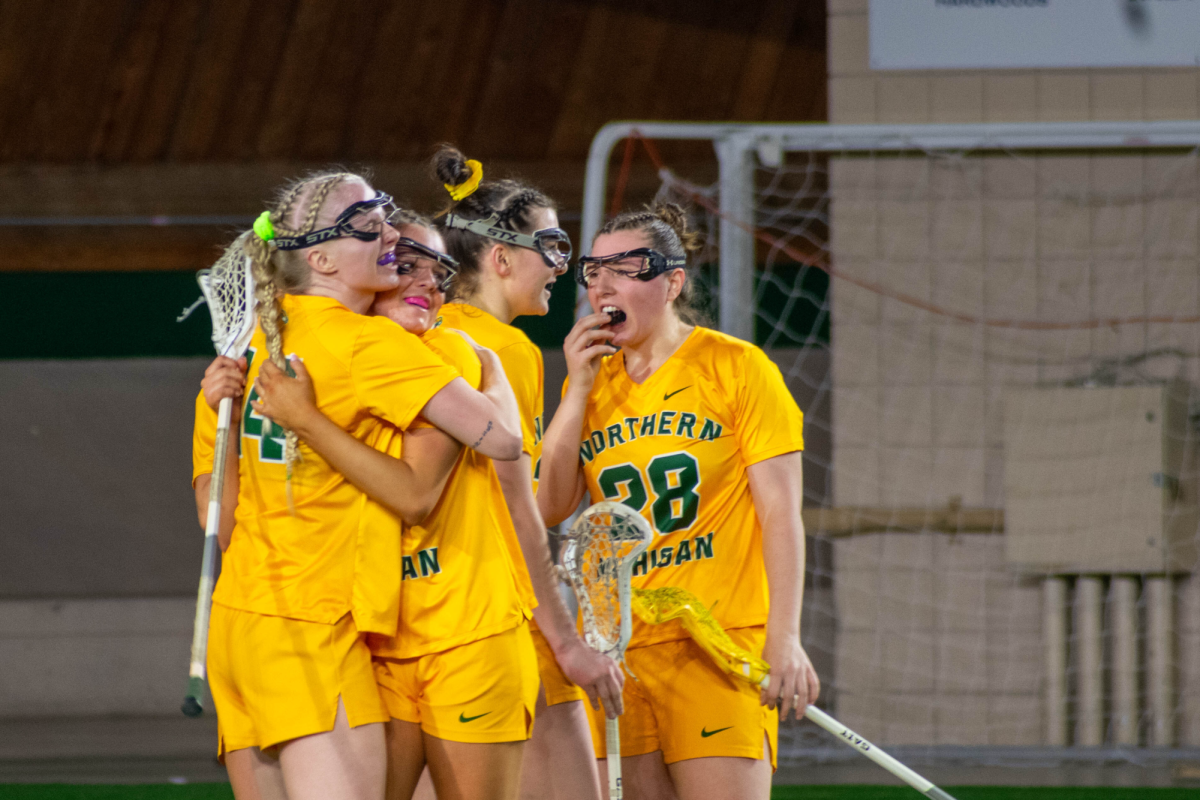The NMU Economic Student Association (ESA) hosted a series of presentations to inform students about the economic impacts of the Kennecott Eagle Mine Project, a copper and nickel mine that may be built by the Rio Tinto mining company on an area of land called the Yellow Dog Plains.
The two-part series began Tuesday, April 6 in Jamrich 105 with a presentation by representatives from Rio Tinto and ended Thursday, April 8 with a presentation from Save the Wild U.P., which is against the project.
The series was sponsored by the ESA to encourage economic discussion on issues that affect students and community members in the Upper Peninsula, said Keith Voorheis, a senior economics and political science major and co-president of the ESA.
“We’re trying to do an event each semester to foster economic discussion. It’s important for students to learn as much as possible in order to make an informed decision,” Voorheis said.
The organization sponsored similar forums last year to discuss Michigan’s financial crisis and methods of financing corporate America.
According to Voorheis, the goal of the series was to present two different perspectives on the mining issue. It was important to make sure that the ESA stood aside from the debate and remained unbiased organizers of the event, he said.
“Both (organizations) prepared themselves. We wanted to offer a forum for people to learn the two sides,” Voorheis said.
At the first presentation, attendees heard from a representative of Rio Tinto, an international mining group operating from its headquarters in London that wishes to begin mining for nickel and copper in the Yellow Dog Plains, approximately 13 miles from Lake Superior.
In 2006, Michigan tightened restrictions on mining laws, and made it very difficult for organizations like Rio Tinto to conduct business, said Chantae Lessard, a representative from Rio Tinto who attended the presentations. Even though the company has worked with the Environmental Protection Agency (EPA) to obtain mining permits, many still have objections to the mining projects, she said.
“All of our (mining) permits have been challenged in court. The courts have always ruled in our favor,” Lessard said.
According to Rio Tinto’s presentation, the constructions of the mine will create 200 jobs for local U.P. residents and will help combat an increasing unemployment rate in the U.P.
The main opposition to the mining projects comes from environmental groups who fear that these mine sites will contaminate the surrounding environment, Lessard said
“We will be mining well underneath the headwater of the Yellow Dog River. There is new mining technology available that will put in place controls to prevent any contamination,” she said.
On Thursday, April 8, members of the Save the Wild U.P. gave reasons why the Yellow Dog river mining project is detrimental to the economy and environment of the U.P.
“In the short run, this project could create jobs and money, but in the long run it will cost us,” said Adrian Bakker, a media technology specialist for Save the Wild U.P.
The project could net a total of $80 billion, but the community will only get $135 million of the profit; this means a total two percent of the gross income goes back into the community, Bakker said.
“I’m mostly interested in the fact that Marquette is gaining nothing. How will (the mine) affect tourism jobs in the U.P,” Bakker said.
Bakker lives on the shores of Lake Independence, and he said that his home could face pollution from the mine. Many home-owners in the area are opposed to Rio Tinto’s mining proposal, he said.
Bakker said that he wants NMU students to learn as much as they can about the situation and realize what the mine could mean for the U.P.
“This (mine) is bad for the U.P. Most people enjoy the way we live up here, and we don’t want it to change,” Bakker said.
























